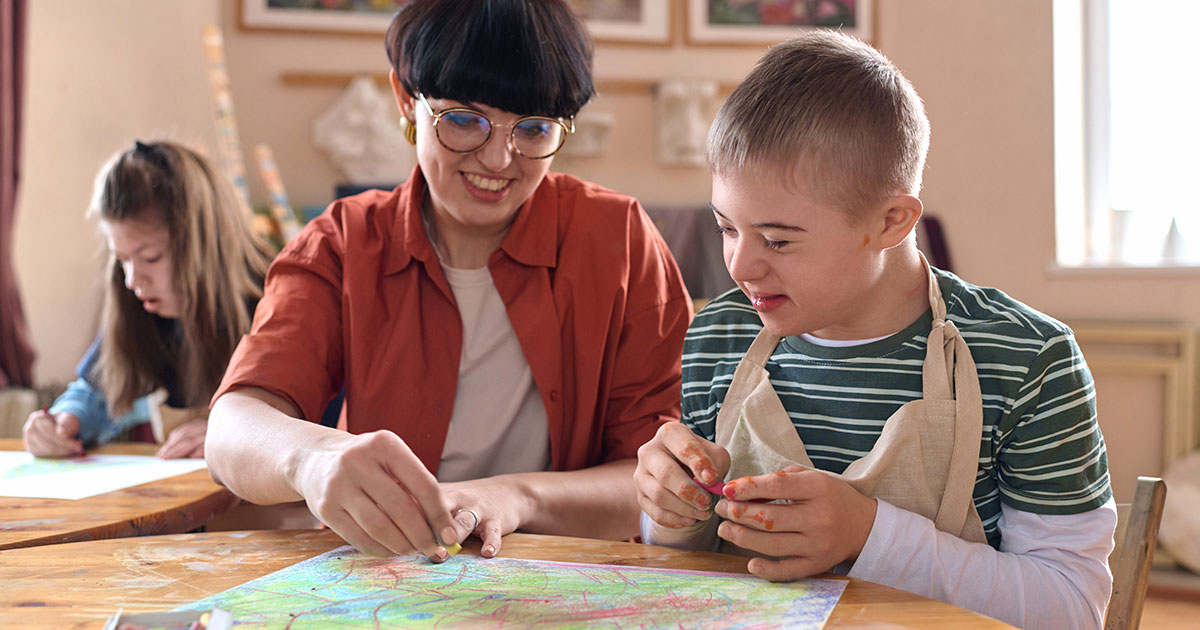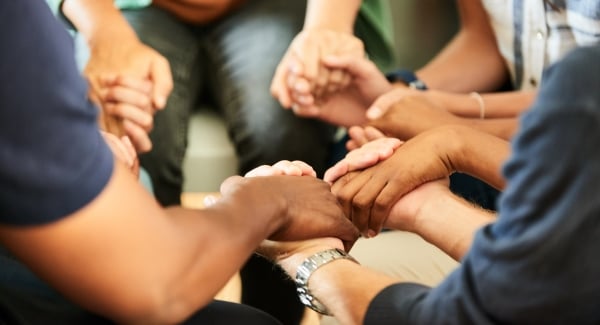Investing in Arts Education
Pursuing a career in art therapy can help turn your creative and artistic abilities into a mental health profession, allowing you to support others, especially at a time when Americans are facing unprecedented mental health crises.
Every day, art therapists support their clients within a therapeutic relationship to use art and creativity to improve their mental, emotional, and physical well-being. They work with people of all ages and backgrounds — from children experiencing developmental delays or emotional and behavioral challenges to military service members with PTSD to older adults struggling with dementia or Alzheimer’s disease.
“At the heart of my work as an art therapist is the creativity and self-expression found in art-making. We’ve all experienced it as children, and some of us have the joy to work with art to help people and communities heal. I’m always inspired by clients who may be afraid of using art materials as non-verbal language at first, but try it anyway,” explains art therapist Christianne E. Strang, Ph.D., ATR-BC.
Particularly when people are struggling, facing a challenge, or even a health crisis, their own words or language may fail them. During these times, an art therapist can help clients express themselves in ways beyond words or language. Art therapists are trained in art and psychological theory and can help clients integrate nonverbal cues and metaphors that are often expressed through the creative process.
According to research, art therapy helps people feel more in control of their own lives and helps relieve anxiety and depression, including among cancer patients, tuberculosis patients in isolation, and military veterans with PTSD.
According to art therapist Kathryn Snyder, Ph.D., ATR-BC, LPC, “Engaging in art therapy offers imagery and creative processes that support communication, expression, and insight into, as well as release of, difficult emotional experiences.”
Opportunities for art therapists
Art therapists serve diverse communities in different settings, such as medical institutions like hospitals, cancer treatment centers, and psychiatric facilities; outpatient offices and community centers; and schools. Many art therapists have independent practices. They also help support individuals and communities after a crisis or traumatic event, like a mass shooting or a natural disaster.
Training in a broad range of psychological theories and ways to use art media and creative processes is necessary to becoming an art therapist who is able to help people process and cope with mental health challenges. Art therapists hold postgraduate degrees and are then credentialed by the Art Therapy Credentials Board as ATR (art therapist registered) or ATR–BC (board-certified art therapist registered).
Learn more about art therapy and how to become an art therapist through the American Art Therapy Association.


